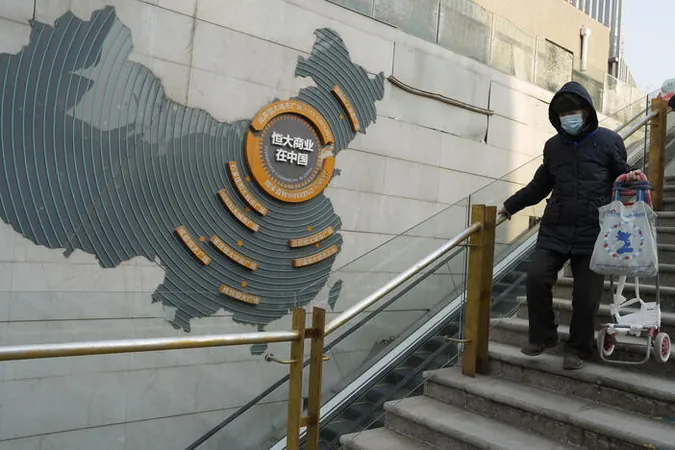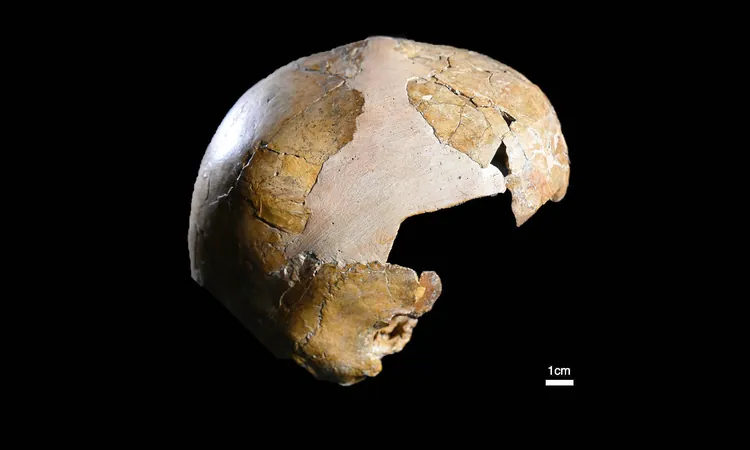
Evergrande's Shocking Delisting: What You Need to Know
2025-08-25
Author: Ting
The Fall of a Giant: Evergrande's Delisting in Hong Kong
In a dramatic turn of events, shares of China Evergrande have officially been delisted from the Hong Kong Stock Exchange as of Monday. This marks a significant milestone in the collapse of the once-mighty real estate developer, whose financial woes have heavily impacted China's property market.
With debts soaring over $340 billion, Evergrande's downfall began after Chinese regulators imposed strict borrowing limits on developers in an effort to curb excessive debt. This crackdown triggered a cascade of defaults among property companies, leading to an ongoing crisis in the country’s real estate sector.
The Details Behind the Delisting
The Hong Kong Exchange confirmed that as of January 29, 2024, Evergrande's shares were last traded before being suspended due to a court order mandating the liquidation of the company. According to exchange regulations, a company’s listed shares may be revoked if trading is suspended for 18 consecutive months.
Evergrande’s Role in the Property Crisis
Years of warnings from credit agencies culminated in a government crackdown on real estate debt in 2020, which included the infamous 'three red lines' policy. This legislation prevented heavily indebted firms like Evergrande from securing new loans to manage their mounting debts. Concerns over a potential collapse rocked global markets in 2021, although the Chinese government assured investors that the impact was manageable.
Homebuyers in China often pay upfront for properties yet to be constructed, but with many developers like Evergrande halting projects, thousands of prospective homeowners found their investments in jeopardy. The resultant slowdown in real estate adversely affected demand for construction supplies, home appliances, and even automobiles, all while the economy was already struggling under the grip of COVID-19 disruptions.
The Continuing Property Downturn
Despite some signs of recovery within the housing market, sales and property values are still on the decline. Real estate previously accounted for nearly 20% of China's economy, but when considering related sectors, its influence swells to about a third.
In response, Chinese leaders are attempting to stabilize the market by encouraging the completion of stalled projects and facilitating affordable housing schemes. Recent actions also include lessening down payment requirements and lifting investment restrictions in major cities, a move some analysts describe as unexpectedly proactive.
The Future of Evergrande
Founded in 1996 by entrepreneur Hui Ka Yan, Evergrande was a symbol of China's rapid property boom. Listed on the Hong Kong Stock Exchange in 2009, its rise mirrored the fortunes of a nation that transformed into a country of homeowners.
In 2023, Evergrande sought Chapter 15 bankruptcy protection in the U.S. but later withdrew the application. With a majority of its assets located in mainland China, enforcing creditor repayment proves challenging, even as liquidators report massive debt claims totaling around $45 billion.
Liquidators have already taken charge of over 100 companies within the Evergrande group, managing assets valued at approximately $3.5 billion as of early 2024. However, despite selling $255 million worth of assets so far, the recovery is described as 'modest'— leaving many questions about Evergrande's future unanswered.




 Brasil (PT)
Brasil (PT)
 Canada (EN)
Canada (EN)
 Chile (ES)
Chile (ES)
 Česko (CS)
Česko (CS)
 대한민국 (KO)
대한민국 (KO)
 España (ES)
España (ES)
 France (FR)
France (FR)
 Hong Kong (EN)
Hong Kong (EN)
 Italia (IT)
Italia (IT)
 日本 (JA)
日本 (JA)
 Magyarország (HU)
Magyarország (HU)
 Norge (NO)
Norge (NO)
 Polska (PL)
Polska (PL)
 Schweiz (DE)
Schweiz (DE)
 Singapore (EN)
Singapore (EN)
 Sverige (SV)
Sverige (SV)
 Suomi (FI)
Suomi (FI)
 Türkiye (TR)
Türkiye (TR)
 الإمارات العربية المتحدة (AR)
الإمارات العربية المتحدة (AR)